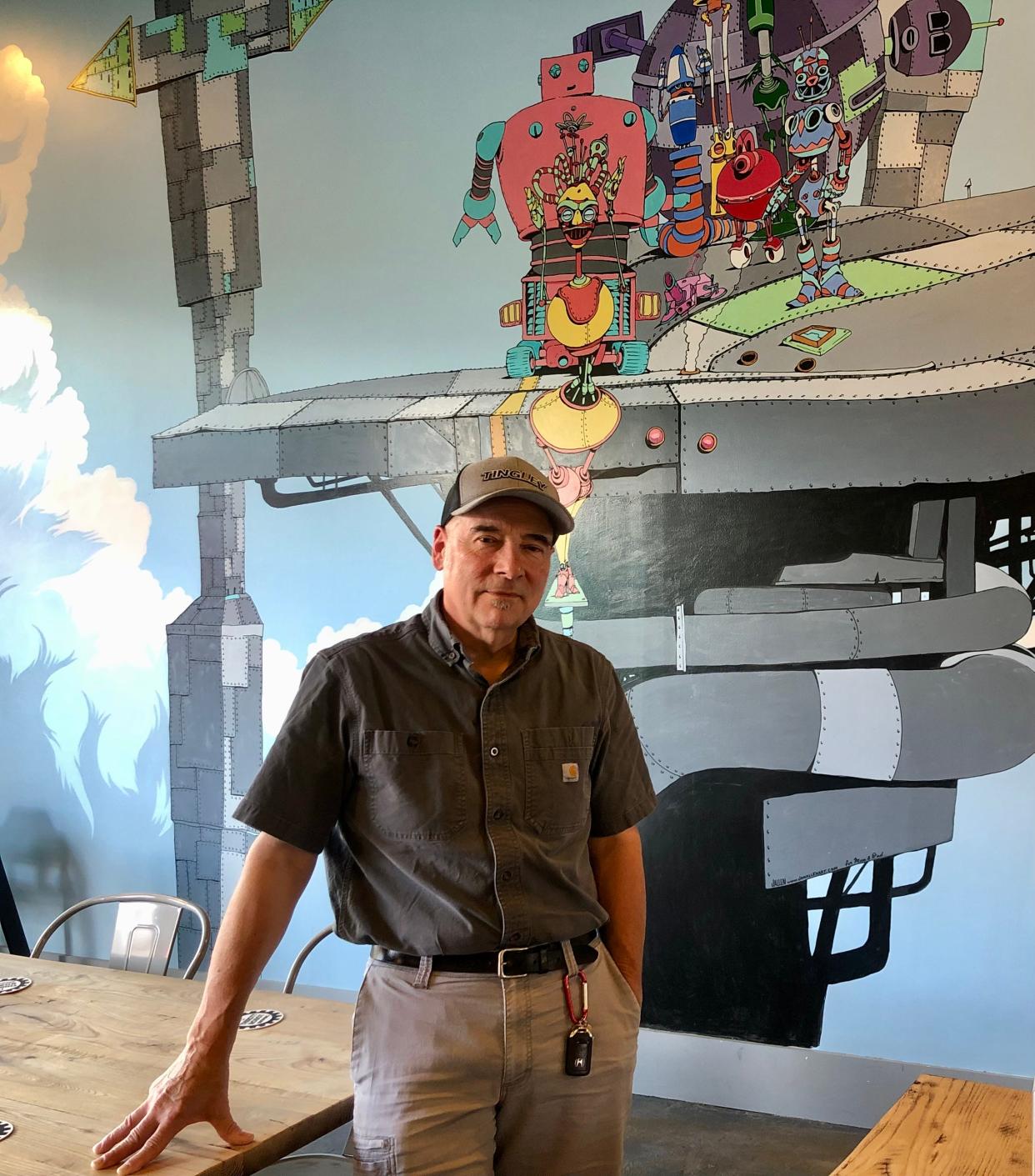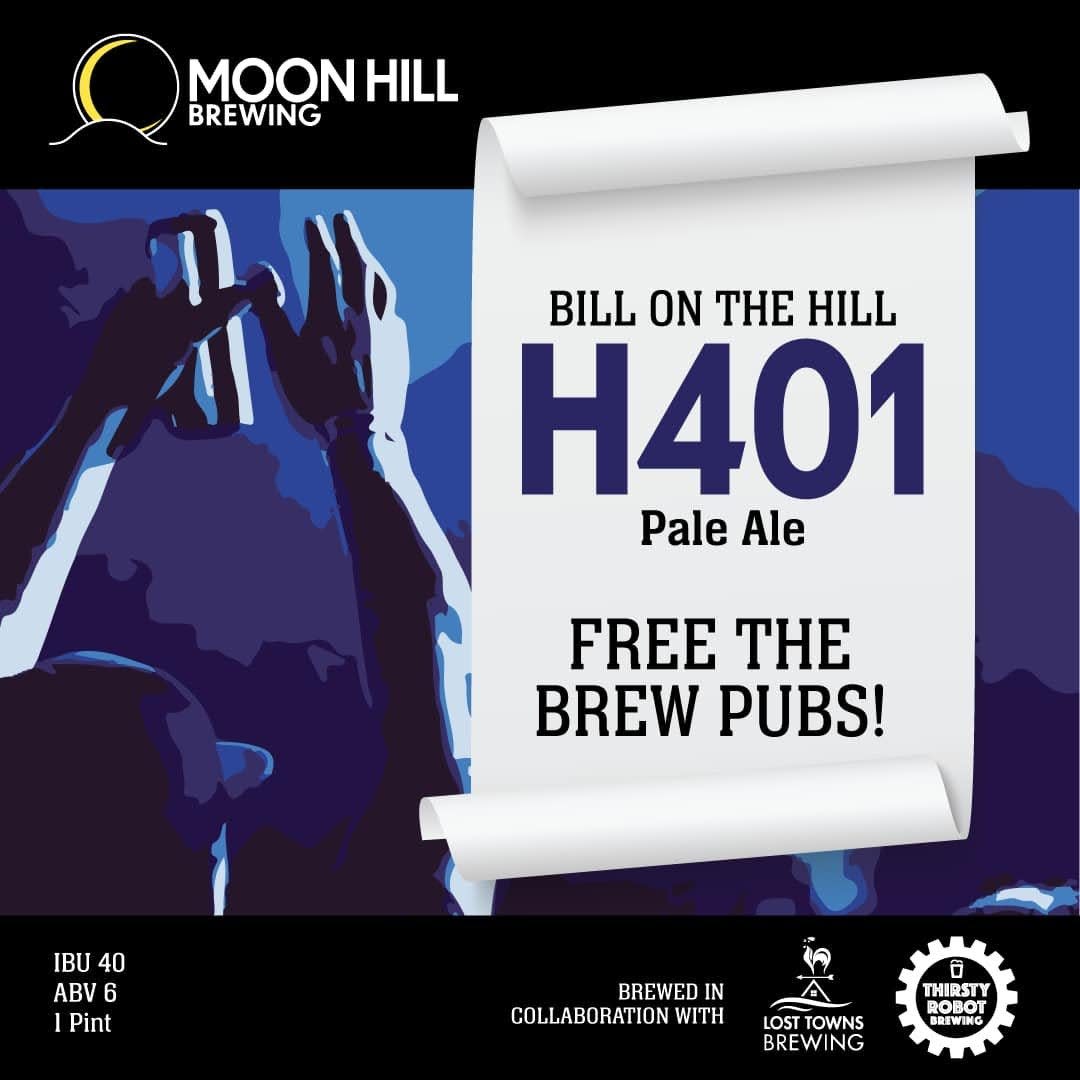Fighting for distribution rights, pub brewers face challenge on Beacon Hill

FITCHBURG — Bill diMario would gladly trade a pair of callused hands and a couple of bucks spent on gas for the chance to introduce his Summer Street brewery to a burger bar of potential customers.
He wants to one day haul a keg from Thirsty Robot Brewing Co. to The Fix Burger Bar in nearby Leominster, a mere 13-minute drive. A bit of physical labor lands him on the restaurant’s tap list, with the opportunity for people to discover a beer from his nearly 3-year-old brewery to complement their blue cheese and bacon burgers.
Unfortunately, Thirsty Robot’s state brewery license does not allow diMario to make the trip, however short: He must pay a wholesaler to truck it there on his behalf.
The same would be true if the restaurant sat across the street.
For at least six years, pub brewers such as Thirsty Robot have been fighting for the right to self-distribute small volumes of their beer, mostly for draft sales at nearby restaurants and bars. But year after year, they have been stymied on Beacon Hill, and it appears the opposition has come from wholesalers.
Of the three state brewery licenses — pub-brewer, farmer-brewer and manufacturer — only pub breweries cannot self-distribute.
'Tough prospects'
This year, a bill sponsored by state Rep. Jonathan Zlotnik of Gardner remains alive in the State House and would allow a pub brewer to self-distribute up to 50,000 gallons, or roughly 1,600 barrels, for off-premise consumption.
“It's very tough to guess at the prospects of passage,” Zlotnik said in an email. “We're also somewhat close to the end of session with many major items still in play.”
He re-filed the bill last year after Gardner’s Moon Hill Brewing Co., founded by Gardner Ale House owner Rick Walton, made him aware of the pub brewers’ plight.
“I think it's important to ensure a level playing field as much as possible,” he said.
Only about 10% of the state’s 232 craft breweries hold pub-brewer licenses, according to data from the Massachusetts Brewers Guild and the U.S. Brewers Association; far more have opted for farmer-brewer licenses.
Just one of those pub brewers, Amherst Brewing in Western Massachusetts, produces over 2,000 barrels (roughly 90,900 gallons) of beer annually. The majority make fewer than 200 barrels (4,650 gallons) a year, closer to Thirsty Robot’s size.
Despite their minimal output, brewpubs worry wholesalers consider their push for self-distribution a threat; diMario doesn’t see how dropping off a keg or two of beer to area restaurants could siphon any serious business from distributors and the hundreds of thousands of gallons of beer they move every day.
“It’s laughable,” he said.
And it’s likely pub brewers would still need to lean on a distributor to reach places beyond their backyards. So if relationships with wholesalers already existed, they wouldn’t try to sever those.
I reached out to the Beer Distributors of Massachusetts to learn why they might fret over the license change, but did not hear back.

'That's not our model'
Thirsty Robot harbors no ambitions of self-distributing cases of beer to liquor stores, diMario said.
“That’s not our model — putting it on a truck and having it disappear. I know the folks who drink and buy our beer,” he said. “I would love to be able to supply bars and restaurant within in a 10-mile radius, though.”
A pub-brewer license appealed to diMario because, unlike with a farmer-brewer license, it allows the freedom of serving other alcohol options, and he thought he might offer wine in his taproom as an alternative. He’s at a point where enough bars and restaurants have shown interest in serving his beer that it would help the brewery to regularly deliver kegs.
How to fall in love with a beer
Among the best ways to discover a new brewery is falling in love with a beer on tap, then learning its brewer lies within driving distance.
I stumbled upon Rhode Island’s Gray Sail Brewing this way in 2015 while lunching with my family at the Olympia Tea Room in Watch Hill. When I looked into its beer, an IPA called “Captain’s Daughter,” I learned Grey Sail was but a 15-minute drive from the seaside neighborhood known for its Gilded Age mansions and connection to Taylor Swift. We hopped in the car after lunch and drove there to try more of Grey Sail’s brews. I’ve been drinking Grey Sail, which just celebrated its 12th anniversary, ever since.
Thirsty Robot hopes to win over longtime customers at the taps. I hate to think the brewery could be robbed of that because a distributor sees it as competition.
Wholesalers love to battle craft brewers over ancient legislation that, because of how the industry has evolved over the years, demands updating.
Not waiting for a change
In 2020, after over a decade of quarreling, brewers and distributors reached an agreement to make it easier for a brewery to sever ties with its wholesaler. That comprise, though, took an entreaty from a billion-dollar beer company. And the law, known as Franchise Reform, is now in question after one jilted distributor challenged it in Superior Court.
The disagreement over pub brewers right to self-distribute is relatively new compared to the franchise law saga. And Jim Koch, founder of Boston Beer Company, isn’t walking through that door to broker a last-minute deal.
Now diMario is considering changing his license to farmer-brewer — another pub brewery, Brockton Beer Co. did the same — rather than waiting for a change in the law.
“It’s necessary for our continued business-health. The Legislature will get around to it, but it’s been over five years now, and I’ve stopped paying attention to it,” he said.
The Massachusetts Brewers Guild has a petition to win pub breweries the right to self-distribute, available on oneclickpolitics.com.
This article originally appeared on Telegram & Gazette: Beyond Beer: Pub brews brawl for distribution rights on Beacon Hill






